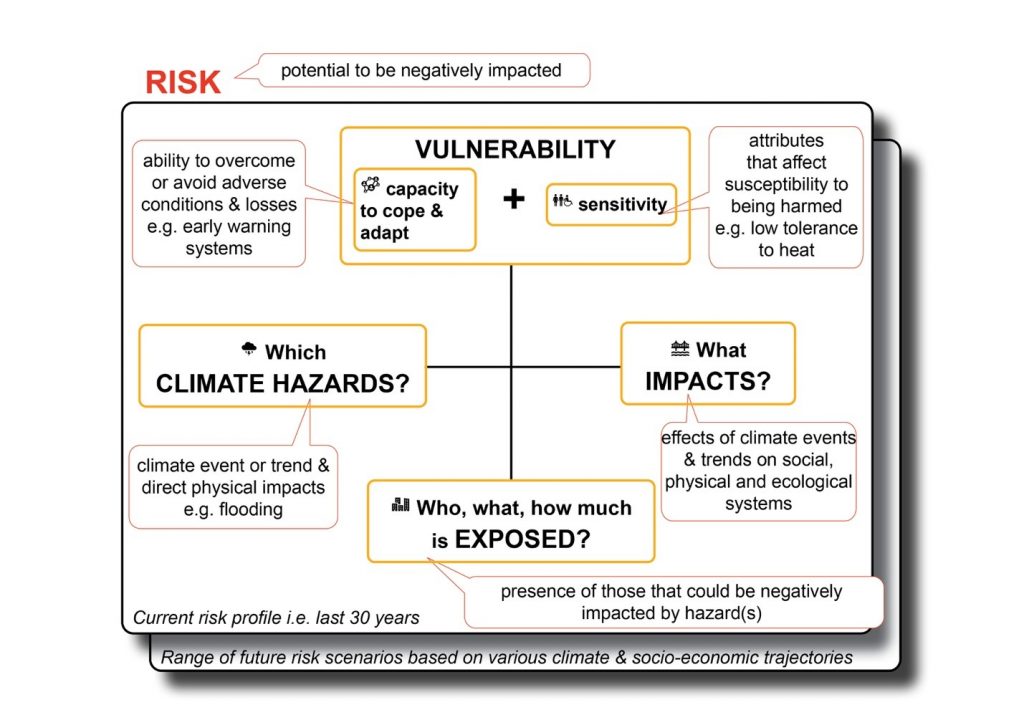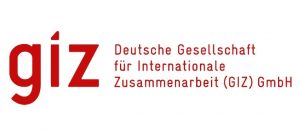In this one year project the team was tasked with developing a National Climate Risk and Vulnerability (CRV) Assessment Framework. The intention of the Framework is to enable conceptual alignment amongst CRV assessments undertaken across various scales and contexts in South Africa, as a way to strengthen the quality of assessments and, where possible, enable comparability and aggregation across assessments.
Climate variability and climate change impacts are not experienced equally, even where the same climate event or climate pattern occurs. To design and implement effective interventions that reduce climate risk it is necessary to assess where, to what extent and by whom various climate impacts have been experienced, why the patterns are as they are, and how this might change into the future.
There are mounting demands on public, private and non-governmental organisations to undertake climate risk and vulnerability (CRV) assessments for policy, planning, funding, insurance and compliance reasons. Existing assessments have tended to be patchy in their coverage and have used a variety of different approaches, methods and data. These inconsistencies have proved problematic for evaluating assessments and aggregating assessment findings to inform planning and decision making at larger scales and higher levels of governance. South Africa’s national government, led by the Department of Environment, Forestry and Fisheries (DEFF), has undertaken to establish a common framework to guide the development and review of CRV assessments to enable a more integrated approach to climate adaptation.
The framework is intended to provide guidance on how to undertake CRV assessments in order to enable alignment, comparison and aggregation across them and thereby underpin an integrated, effective climate adaptation response across scales. The framework promotes the use of a standard set of concepts as the basis for each assessment (as depicted in the figure below). The framework and guidance is aimed at any actor in South Africa wanting to assess CRV. The framework defines risk and vulnerability as per the Intergovernmental Panel on Climate Change (IPCC) Fifth Assessment Report (AR5), aligning it with global thinking and encouraging conceptual consistency amongst assessments (see Chapter 2). It provides a flexible yet structured sequence of three interlinked steps in the assessment process: 1) Planning, 2) Scoping, 3) Assessing (see Chapter 3). The framework guides users through the choice and application of three assessment depths, depending on decision-context, resourcing and extent of pre-existing data and information. It encourages the integration of participatory and indicator-based methods through an impact chain approach (see Chapter 4), profiling more than thirty freely available tools and resources (see Appendix One). The framework also touches on the use of CRV Assessments for monitoring and evaluating climate action (see Chapter 5). Download the full framework report and an accompanying briefing note providing an overview of the framework below.

Download the REPORT and the BRIEFING NOTE below:
Time Frames: May 2019 – February 2020
Funders: Department of Environment, Forestry and Fisheries (DEFF), Deutsche Gesellschaft fur Internationale Zusammenarbeit (GIZ)
For further details: contact Gina Ziervogel

